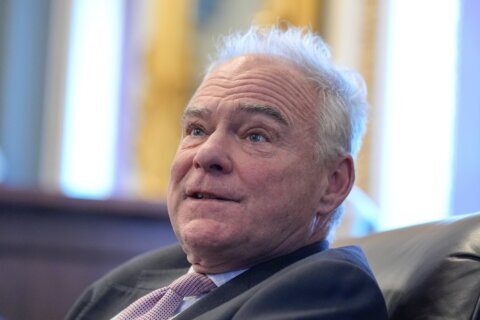Congress — and millions of Americans — are running out of time for emergency coronavirus relief to be approved by lawmakers.
A bipartisan group of U.S. Senators is trying to renew momentum for a $908 billion proposal, releasing legislation on Monday that some hope can still be a building block for an agreement the House and Senate can pass.
The legislation is being broken into two parts. The larger, $748 billion package will include a wide range of funding in areas many lawmakers of both parties agree on, including vaccine distribution and the Paycheck Protection Program.
The second part has been a sticking point for months. The proposal gives $160 billion to state and local governments, as well as liability protection for businesses concerned about getting sued for issues related to the virus. It also includes $300 in weekly unemployment benefits for jobless Americans for another four months.
The breakdown of the new measure was first reported by Politico.
“Republicans want liability protection and don’t like state and local government aid. And Democrats want state and local government aid and don’t like liability protection. What can we do?” said Sen. Tim Kaine, D-Va.
Kaine has been involved in discussions related to liability issues and hopes the lawmakers can reach a compromise. He says that members of Congress can’t leave Washington before the holiday break without passing new legislation.
Senate Majority Leader Mitch McConnell recently suggested dropping the state and local aid and liability protection so that lawmakers could forward on a more limited measure. But his proposal was quickly rejected last week by Democratic leaders.
Beyond the broader legislation, some lawmakers are pressing for new checks to be cut and sent to Americans, as they were under the CARES Act that Congress approved back in March.
Sens. Bernie Sanders of Vermont and Josh Hawley of Missouri are proposing that individuals get $1,200 checks, along with $500 per child.
“You got a husband and wife and two kids, that’s thirty-four hundred bucks,” Sanders said last week on the Senate floor. “Maybe they could use that money to pay a couple of months’ rent, buy some food.”
Sanders and Hawley have said they do not like that the bipartisan package doesn’t include any stimulus checks. They have vowed to bring their proposal to the floor this week, which could complicate efforts to deal with another problem: avoiding a government shutdown.
Lawmakers relented on a threat to hold up a continuing resolution that was eventually approved last Friday to keep the government running.
But that short-term spending measure expires this Friday at midnight.
As Congress continues to try to hammer out agreements on COVID-19 relief and an omnibus spending bill, struggling Americans continue to wait. If they fail to act, close to 12 million Americans could lose unemployment insurance before the end of the month, according to a study by the Century Foundation, a public policy research group.








